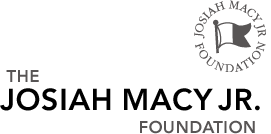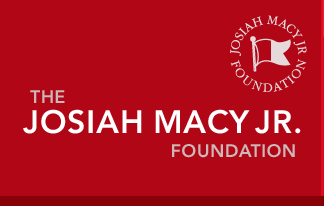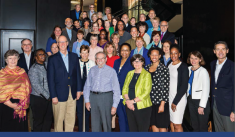Our Grantees
Across the Foundation’s priority areas, our grantees are working to improve the health of the public through innovative research and programs. The Foundation awards up to 40 grants on a rotating schedule each year.
Educating Future Leaders in Primary Care for Chronic Illnesses and the Medically Disenfranchised
The American Association of Medical Colleges (AAMC) and thought leaders in medical education have strongly argued that medical schools should incorporate longitudinal patient encounters into their curricula. Medical students typically do not have the opportunity to learn about and participate in the long-term care of patients with chronic illnesses. In traditional models of clinical education, students rarely have contact with patients for more than a brief period of time and predominantly only in the context of inpatient clinical care. Students are therefore unable to observe the natural history of chronic diseases, to see patients as they transition from one clinical venue to another, to appreciate the patient perspective of being chronically ill, or to experience firsthand the evolving patient-doctor relationship. In order to address these educational deficiencies, a committee of clinical educators has developed and implemented structured longitudinal clinical experiences (LCEs) at Mount Sinai School of Medicine. Inextricably tied to these experiences is the development among students of a rich understanding of the patient experience and a burgeoning appreciation for the needs of the medically disenfranchised.
This three year grant will augment Mount Sinai’s longitudinal care model by implementing an expansion into the third year called Interclerkship Ambulatory Care Track (InterACT) that will focus on developing a deeper appreciation of chronic illness, advocacy, and the plight of the medically disenfranchised. This expansion will also aid in transitioning medical students in their last 2 years into the role of leader and teacher as they care for patients with limited access to healthcare.
Project Goals
Mount Sinai seeks to enhance its longitudinal care model by implementing comprehensive educational programs with the following goals:
- Implement a longitudinal care curriculum that places third year medical students at the center of the care of community-dwelling patients with chronic illnesses;
- Create an integrated clerkship that largely replaces the traditional inpatient model of clinical education in an effort to improve the training of students committed to the longitudinal primary care of patients; and
- Implement a scholarly program that provides opportunities for medical students to learn and teach humanism, advocacy, and interdisciplinary medical care in the context of working longitudinally with the medically disenfranchised




 11.13.18
11.13.18